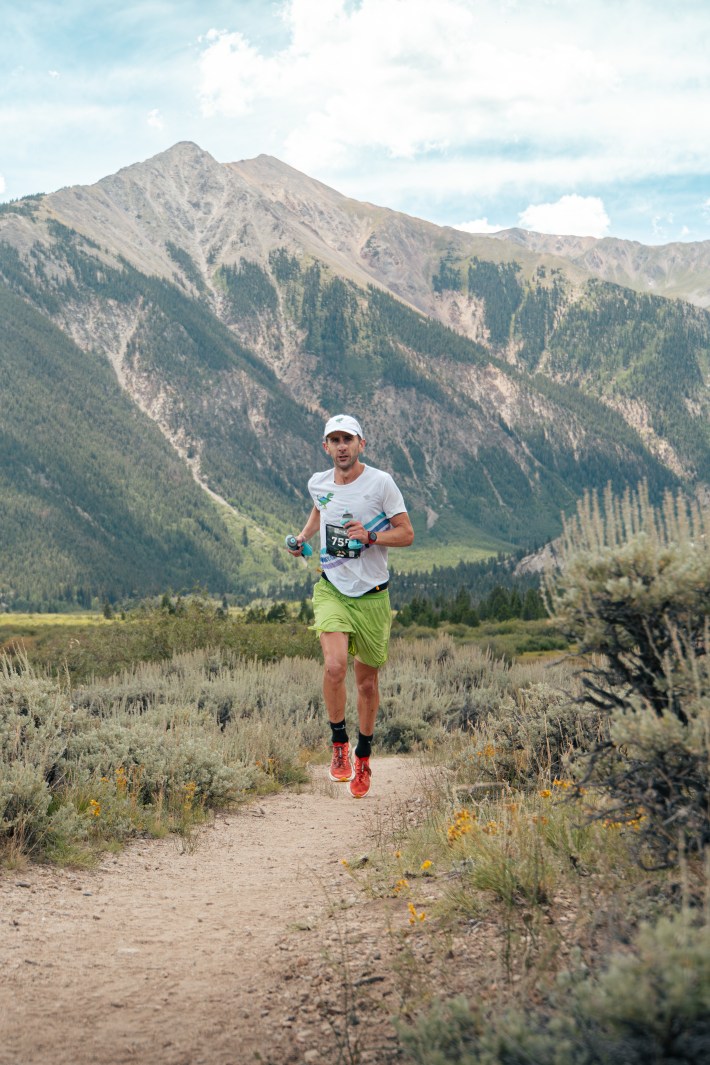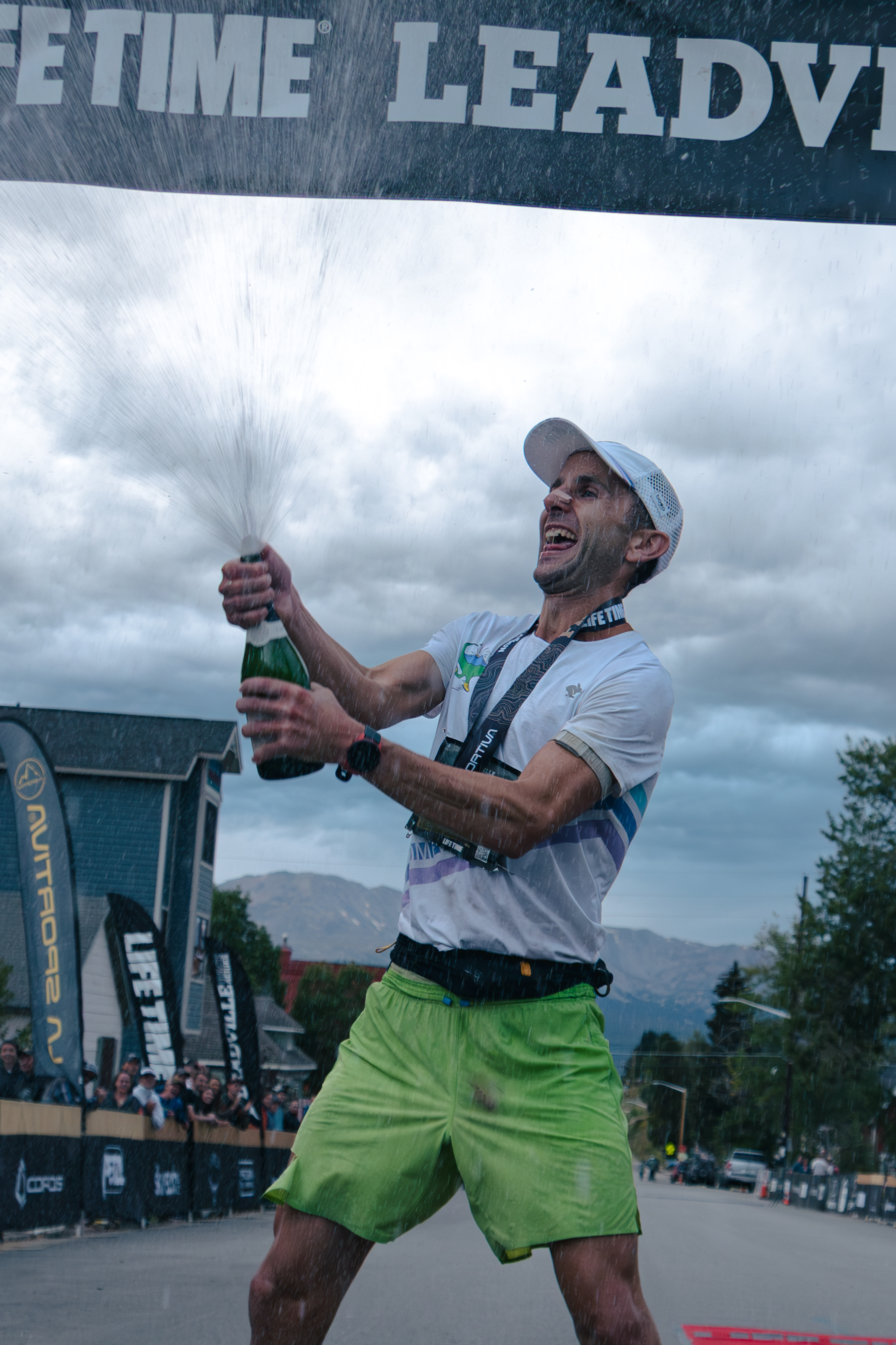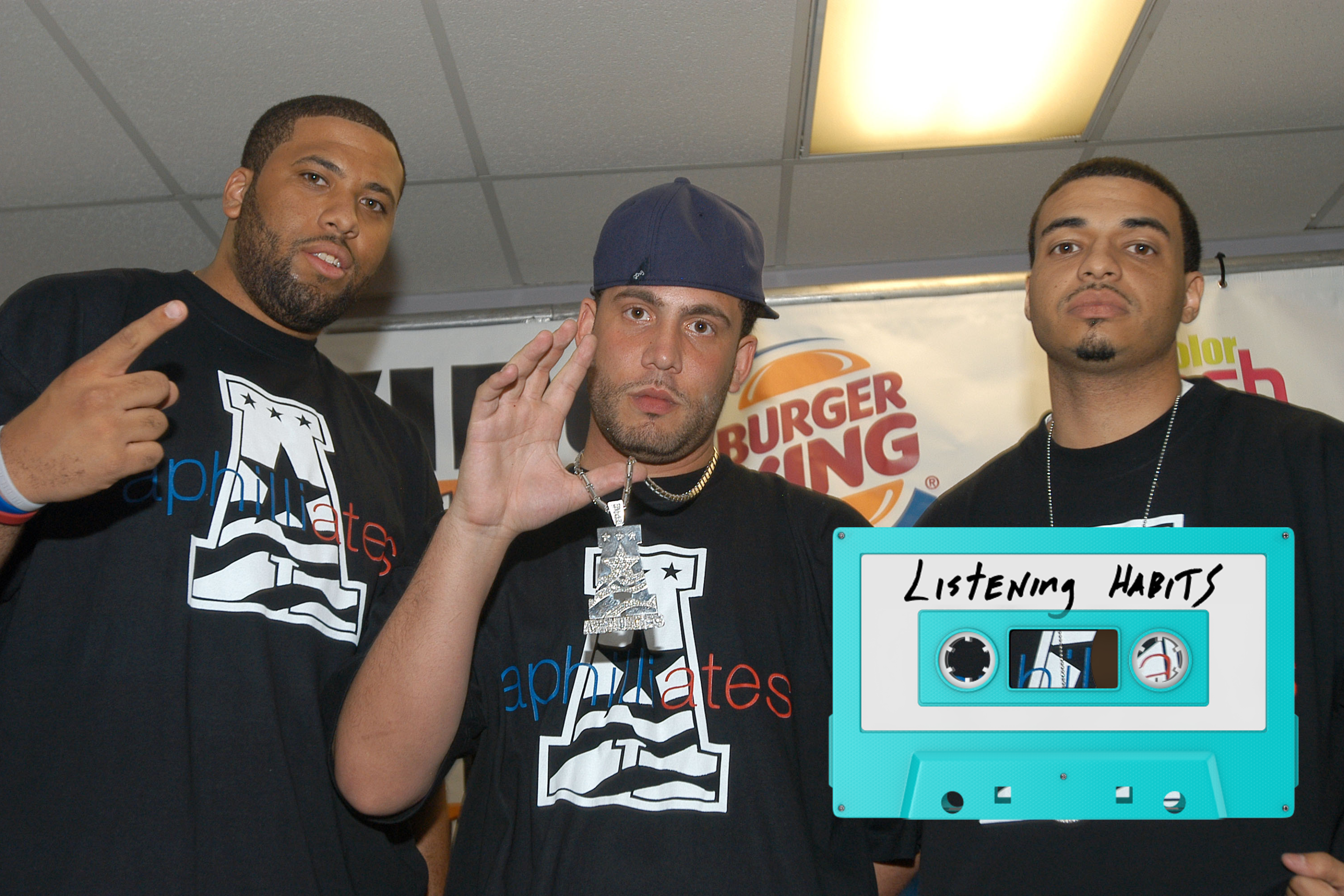On Aug. 17, David Roche destroyed the course record at the Leadville Trail 100. The performance was, objectively, spectacular. Leadville is one of the iconic races in ultrarunning, a 100-mile beast that wildly fluctuates in elevation on a trail in the Rocky Mountains; Roche beat a course record that had stood for 19 years. As impressive as it was, an unthinkable record goes down seemingly every weekend in ultrarunning, which is currently going through the same evolutionary spasm as all endurance events.
What was fascinating was how Roche did it. Leadville was the first-ever 100-miler for the 36-year-old, and the longtime writer and coach trained for it in extremely unconventional fashion.
Along with his wife/coach, Megan, Roche set up his training as a hyper-precise, wildly successful science experiment. He ran fewer miles in a week than he would on the day of the race, minuscule training by ultra standards. (Roche’s would-be rivals are running roughly double his 60-75 miles per week.) He pushed the limits of exercise science with his race-day fueling strategy of gulping 500 calories per hour. And he was right about all of it: He made a spreadsheet that ultimately came within 26 seconds of predicting his record time of 15 hours, 26 minutes, and 34 seconds.
I first got in touch with Roche when he responded to a joke I made online by pointing out that he had injured his penis during the race, something that was clearly evident from photos of his historic finish. We exchanged a series of emails this week; our messages have been lightly edited for length and clarity. (Note: Roche frequently refers to heart rate “zones” of training, a topic he has extensively written about.)
I have to start here: Is your penis OK? What exactly happened?
Prior to the race, I applied our baby's diaper cream like I was adding frosting to a cake. I missed an important part of the cake. After running through rivers and getting dumped with ice water at every aid station, my oversight came back to haunt me when I pulled to the side of the trail to pee and saw something that I can't unsee. Ten days later, I have physically healed. But emotionally, I may never be the same.
What made you decide that you needed to get in 13-something 5K/sub-4:00 mile shape to break a 100-mile course record?
The [former] course record holder Matt Carpenter is the Babe Ruth of mountain running; I'm Todd Zeile by comparison.
This is Defector, so you better believe I am remembering guys.
To compete with Matt, I couldn't try to beat him at his own game. I had to choose a new way to solve an old problem: How do you cover ground efficiently in the mountains when you're going to be limited by the amount of calories you can take in when you push harder? It was a math equation that I hypothesized required making my body hyper-efficient in Zone 2 aerobic outputs. I come from a football background, so my strength is my speed. By raising the ceiling, I raised the floor high enough for Todd Zeile to call his shot.
How did you land on your fueling strategy? What were the risks?
If my Leadville 100 race pushes the field of physiology forward, it's via some astronomical fueling totals. I took in 500-plus calories per hour (120-140 grams of carbohydrates), all through gels and sports drink, inspired by athletes in cycling who have been pushing the limits of the GI system for the last few years. It all gets back to the energy equation: At the top end of Zone 2 (which I optimized with lots of speed training), I knew that I likely burned around 400-500 calories per hour. To chase history, I'd need to increase the intensity and burn rate above that into Zone 3 on some of the climbs. So I needed to maximize carbohydrate availability to push that hard, or I'd bonk within a few hours. The risk was GI distress. But Steph Curry can't think about the risk of missing when pulling up from the logo.
To take in that many calories, I had to train my GI system as much as my endurance. That's where I looked to competitive eating. Those athletes prepare their stomachs to handle those soggy hot dogs by using fluids, rather than hot dogs, which makes sense from a long-term health perspective. Similarly, I tried to drink lots of fluid at once during training all the time, and I'd sometimes consume 90-120 grams of carbs all at once too. Thus, even with the large volume of crap I was throwing down my throat, I never felt bloated. I did vomit 10 minutes after the finish, though.
What from cycling led you to your fueling strategy?
A few studies have come out with athletes pushing 120 grams of carbs per hour, showing improved fatigue resistance late in events. But my mind was opened to how I could solve the Leadville equation during Stage 18 of the Tour de France. Victor Campenaerts won the stage unexpectedly, and after the stage, his sponsor Precision Fueling & Hydration released his data (rare in cycling, where everyone holds secrets like they’re Gollum). He did 132 g/hr, pushing closer to 150 g/hr at times. I had never heard of anyone trying that and succeeding at such a high level. So I went for it, and I think I showed that it's possible in running too.
Cycling is conducting the biggest uncontrolled performance experiment in the world. In ultras, the margins of human performance are not here yet. I was 1.6 percent ahead of Matt Carpenter, and I bet someone is going to be a few percent ahead of me. In cycling, everyone has (very roughly) the same power at baseline. When the margins are that narrow, the best training/fueling wins, and that's one reason why doping has such a troubled history in that sport—it’s a confounding variable that fucks up a true understanding of human biking performance over longer time horizons.
So we try to pay attention to that cycling experiment, interviewing coaches and athletes who are willing to talk. Even behind the scenes, it seems like cycling has more of a commitment to clean sport than it did in the Lance era, which is essential because sports and pushing human limits are all dumb and fruitless endeavors without an uncompromising commitment to clean sport.

This is going to seem like an impossibly over-broad question, but how do you think about science and technology in your training, coaching, and racing?
It might be a benefit of starting as a football player 18 years ago, charting out the future I wanted as an endurance athlete: I didn't have any preconceived notions of what worked and what didn't.
That curiosity means that a big question like breaking the "unbreakable" record could be broken down into component parts. What advantages do we have in 2024 that Matt Carpenter didn't have in 2005? Some of the advantages relate to the nuance of training theory, but some of the most fascinating developments come straight from scientific studies and athletes trying new things at the edges of human performance. On race day, I took Maurten sodium bicarbonate—baking soda, but with fancy marketing—at 2:00 a.m. before the 4:00 a.m. start. Years ago when I first heard about how bicarb might buffer fatigue during intense events, I was skeptical. Some studies trickled in, followed by some conversations with Olympic track athletes, and I realized that my skepticism was probably wrong. I was curious about how the same principles might apply to very long events, so I experimented on myself, grounded equally in science and anecdote. Now, I think we're going to see a surge in this stuff being used in ultras. But if I wasn't curious and open to being wrong, I'd be a dinosaur who was still dismissing this baking soda nonsense. It's evolve or die when it comes to being at the cutting edge of any scientific field, and ultra physiology is just beginning to be explored.
How do you keep the noise/questioning in your head relatively low (as an athlete) while constantly researching and experimenting (as a coach)?
I am not one of those athletes who is gifted with a brain that is free of chatter. My inner monologue won't stop yapping … as a result, I spend a bunch of hours each week training and thinking. I'm constantly getting data input from my body, and my brain is constantly interpreting that data.
I just can't turn that off.
The background noise in my head is a massive blessing as a coach—I get to see, feel, and live the same process as athletes, and come to some preliminary hypotheses much sooner. I incorporate that into all the data I have on how my body is recovering and adapting to understand not just the theory of ultra training, but how it all feels on a zoomed in, visceral level.
I just realized that may all be a long-winded way of rationalizing my anxiety.
You’ve mentioned a bit that ultrarunning is not really a fully solved sport. What’s the next thing that will push the sport? Is there something that could push things not just incrementally but way past where it is now?
Perhaps this is impostor syndrome speaking, but I think my performance at Leadville proves what I suspected in coaching: We are nowhere close to the limits of human physiology in ultra events.
Here's an unscientific reflection: At mile 62, a distance I had never run before, I remember flying into an aid station. At that moment, I knew that I was wrong on one of my assumptions. I always assumed that the Born To Run argument about our evolutionary endurance history was overblown. I wasn't born to run; I was born to eat Fritos. Floating on those trails, I realized that humans really are destined to do this.
What happens when we combine evolutionary destiny with modern performance science? I think I showed that we can push harder than many people think, for longer than people think, with less training than people think. In shorter distances, we've already had millions of athletes push those limits. But in ultras? Humans are just getting started. And that applies to everyone.
Have you heard from any coaches or runners in ultrarunning about your approach and how it might influence them now?
That's the cool thing about being an open book for so long. My wife and I talk about everything on our podcast, with the science and theory right alongside the really hard shit, like my bike accident in April where I was launched 100 feet into a fence. We opened up, and we found that the other side of vulnerability is love.
So yes, there might be some changes in training theory, particularly around fueling. But I think the legacy of that lucky shot (and let's be honest, there was a massive chunk of luck involved) will be that you don't have to be an invincible, impervious superhero to do something that seems heroic—at least for a year, until the record is hopefully broken again by someone better than me applying the lessons I learned.
Ultras are known for the "Pain Cave," this mythical place where athletes suffer for hours on end. What I learned after the accident is that the Pain Cave doesn't mean "pain" like a head injury or broken bones. It means stripping down the physical artifice of normal life and exposing your muscles and sinew to the world. It's totally vulnerable, and I, the anxiety-riddled former football player who very few people believed was setting a reasonable goal, wanted to see what would happen when I was stripped down to that vulnerable place.
This was my first 100, and I didn't care when and how I got to experience the Pain Cave. I just wanted to experience it of my own volition, not because of a fucking car making a left turn without seeing me. And I learned that I could go into that cave, turn on a light, and find thousands of people giving me love and telling me how I inspired them no matter how the race turned out.
Also, on the drive home to our Airbnb after the race, I thought I was dying. It was my first 100, and it felt so strange. I made Megan pull over. She's a doctor, and she assured me I wasn't dying. But I wasn't sure. So I sat there, about to pass out, when suddenly:
FARRRRRRRRTTTTTTTTT.
I let out a 20-second fart from the pits of hell.






